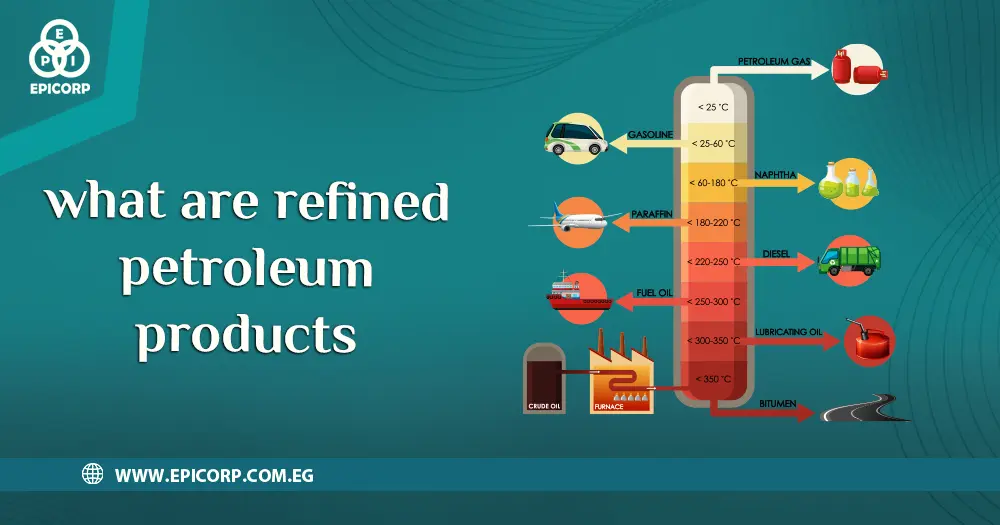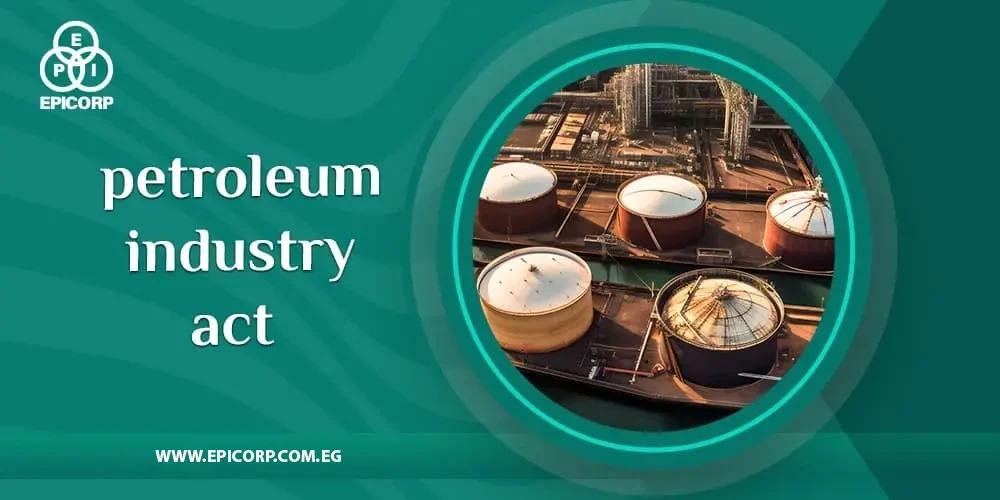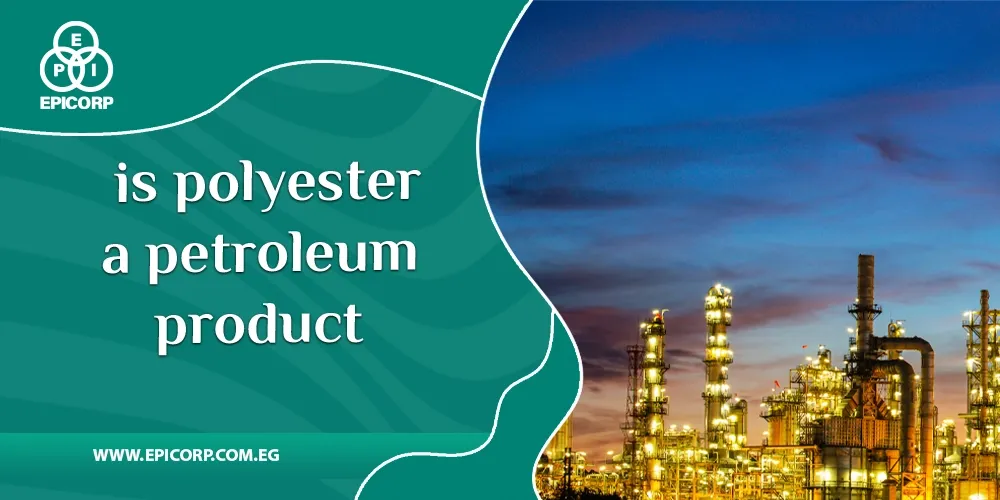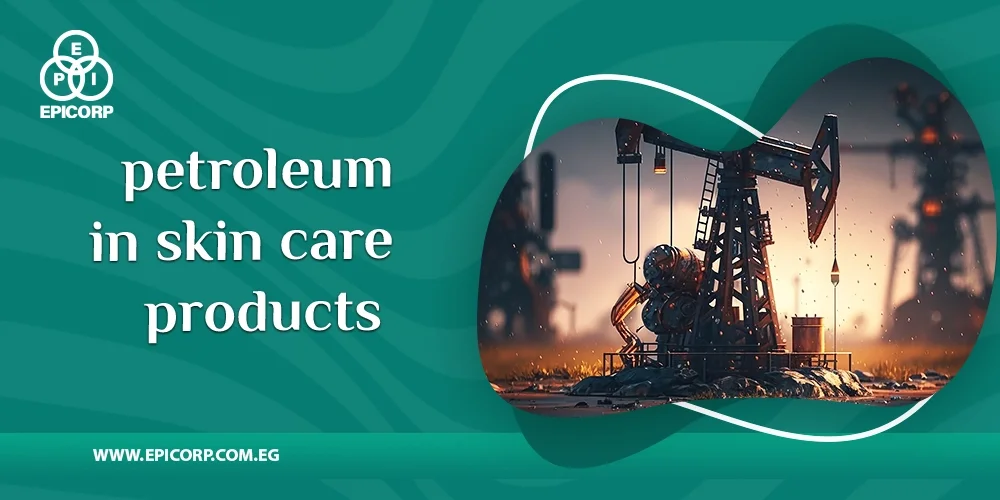what are refined petroleum products? play a pivotal role in powering and sustaining various facets of modern life. Derived from crude oil through a complex process known as refining, these products undergo intricate treatments to meet diverse industrial, commercial, and domestic needs.
Refined petroleum products encompass a vast array, ranging from the familiar fuels that propel our vehicles to the essential components of everyday items such as plastics, lubricants, and petrochemicals. This introduction delves into what are refined petroleum products? exploring their origin, production processes, and the indispensable roles they play in shaping our interconnected global society.
Table of Contents
ToggleWhat is petroleum refining?
When it comes to what are refined petroleum products? often simply referred to as refining, is a complex industrial process that transforms crude oil into a diverse range of valuable products, meeting the demands of various industries and consumers.
Crude oil, extracted from underground reservoirs, is a mixture of hydrocarbons with impurities and different properties. The refining process involves separating, converting, and upgrading these components to produce refined petroleum products. The key steps in petroleum refining include:
Distillation: Crude oil is heated in distillation towers, and its components are separated based on their boiling points. This primary separation yields fractions like gasoline, diesel, kerosene, and heavier components.
Conversion: Processes like cracking and reforming are employed to modify the molecular structure of hydrocarbons. Cracking breaks down large hydrocarbons into smaller, more valuable ones, while reforming transforms certain fractions into higher-value products like gasoline.
Treatment: Various treatments, such as hydrotreating and desulfurization, are performed to remove impurities like sulfur, nitrogen, and metals, enhancing the quality and environmental compatibility of what are refined petroleum products?
Blending: Different fractions and additives are blended to achieve specific product characteristics, ensuring they meet regulatory standards and customer requirements.
Final Product Production: The refined products include various fuels (gasoline, diesel, jet fuel), lubricating oils, asphalt, petrochemical feedstocks, and specialty products.
Read also: Petroleum Industry Definition.
Types of refinery
Refineries come in various types, each specializing in specific processes and products. The main types of what are refined petroleum products? include:
1. Atmospheric Distillation Refineries:
- Focus on the initial separation of crude oil into different fractions based on boiling points using atmospheric distillation towers.
2. Vacuum Distillation Refineries:
- Employ vacuum distillation to further separate heavier fractions with higher boiling points that are not effectively separated in atmospheric distillation.
3. Hydroprocessing Refineries:
- Use hydrogen in processes like hydrotreating and hydrocracking to remove impurities and break down large hydrocarbons, improving the quality of fuels and other products.
4. Coking Refineries:
- Employ coking processes (such as delayed coking or fluid coking) to thermally crack heavy residues from atmospheric and vacuum distillation into lighter products.
Read also: Petroleum Refinery In Modern Times.
5. Cracking Refineries:
- Specialize in processes like fluid catalytic cracking (FCC) or hydrocracking to break down large hydrocarbons into valuable products like gasoline and diesel.
6. Integrated Refineries:
- Combine various refining processes within a single facility, allowing for efficient production of a wide range of refined products.
7. Petrochemical Refineries:
- Speaking about what are refined petroleum products? Focus on producing petrochemical feedstocks and other chemical products alongside traditional fuels. These refineries often include additional processing units like steam crackers.
8. Biomass Refineries:
- Process biomass feedstocks (such as biofuels or biogas) using refining techniques similar to those in traditional refineries.
9. Mini-Refineries or Modular Refineries:
- Smaller-scale facilities designed for specific regions or niche markets, offering more flexibility and lower capital investment compared to larger refineries.
10. Topper Refineries:
- A subset of mini-refineries, toppers focus on topping crude oil to produce lighter products like naphtha and diesel.
Get to know: What Is Petroleum Energy
Refined petroleum vs crude petroleum
When it comes to what are refined petroleum products? Refined petroleum and crude petroleum (crude oil) are two distinct stages in the process of transforming crude oil into usable products. Here’s a comparison between refined and crude petroleum:
1. Crude Petroleum (Crude Oil):
Source:
- Crude oil is a naturally occurring fossil fuel found beneath the Earth’s surface in geological formations. It is extracted from reservoirs through drilling.
Composition:
- Crude oil is a complex mixture of hydrocarbons, including various organic compounds such as alkanes, cycloalkanes, and aromatics. It also contains impurities like sulfur, nitrogen, and heavy metals.
State:
- Crude oil is a raw, unprocessed liquid. Its composition and properties vary depending on the geographical location and the specific reservoir from which it is extracted.
Usages:
- Crude oil is not directly usable in its raw form. It undergoes refining processes to separate and convert its components into different refined petroleum products.
2. Refined Petroleum:
Source:
- what are refined petroleum products? is derived from crude oil through the refining process carried out in oil refineries.
Composition:
- Refined petroleum consists of the various products obtained from refining crude oil. These include gasoline, diesel, jet fuel, lubricants, petrochemical feedstocks, and more.
State:
- what are refined petroleum products? Refined petroleum products exist in various states, including liquid fuels (gasoline, diesel), lubricating oils, gaseous fuels (liquefied petroleum gas – LPG), and solid products (asphalt).
Usages:
- Refined petroleum products are the end results of the refining process and are the substances used for various applications. Gasoline and diesel are used for transportation, lubricating oils for machinery, petrochemicals for manufacturing, and so on.
Read also: Oil Refinery Waste Products.
What are refined petroleum products
what are refined petroleum products? Refined petroleum products constitute a comprehensive array of substances derived from crude oil through the intricate process of refining. These products undergo meticulous treatments and transformations to cater to diverse industrial, commercial, and domestic needs.
Ranging from the familiar fuels like gasoline and diesel that power our vehicles to essential components of everyday items such as plastics, lubricants, and petrochemicals, refined petroleum products are integral to modern life.
The refining process enables the extraction of valuable materials, leading to a versatile spectrum of substances crucial for driving progress, powering industries, and shaping our interconnected global society.
Hers’s: What Are The 10 Uses Of Petroleum.
Conclusion
In conclusion, what are refined petroleum products? refined petroleum products stand as the versatile lifeblood of our modern civilization, embodying the transformative journey from crude oil to an array of essential substances. Their significance extends beyond merely fueling our vehicles to permeate virtually every aspect of daily life.From manufacturing and transportation to the myriad products that populate our homes. The intricate process of refining at EPICORP unleashes a spectrum of valuable materials, including fuels, lubricants, and petrochemicals, each playing a unique role in driving progress and innovation.
FAQ
What are the major products when petroleum is refined?
Petroleum refining yields a range of valuable products. Primary among these are gasoline, diesel fuel, jet fuel, and various grades of lubricating oils. Additionally, the refining process produces petrochemical feedstocks used in the manufacture of plastics, synthetic rubber, and other industrial materials. Other by-products include asphalt and petroleum coke.
What products use refined oil?
Refined oil finds extensive use in various products and industries. The primary products include gasoline for vehicles, diesel for transportation and industrial purposes, and jet fuel for aviation. Refined oil is also a key source of raw materials for petrochemicals, contributing to the production of plastics, synthetic rubber, and chemical solvents. Additionally, it is utilized in the manufacturing of lubricants, waxes, and asphalt for road construction.




